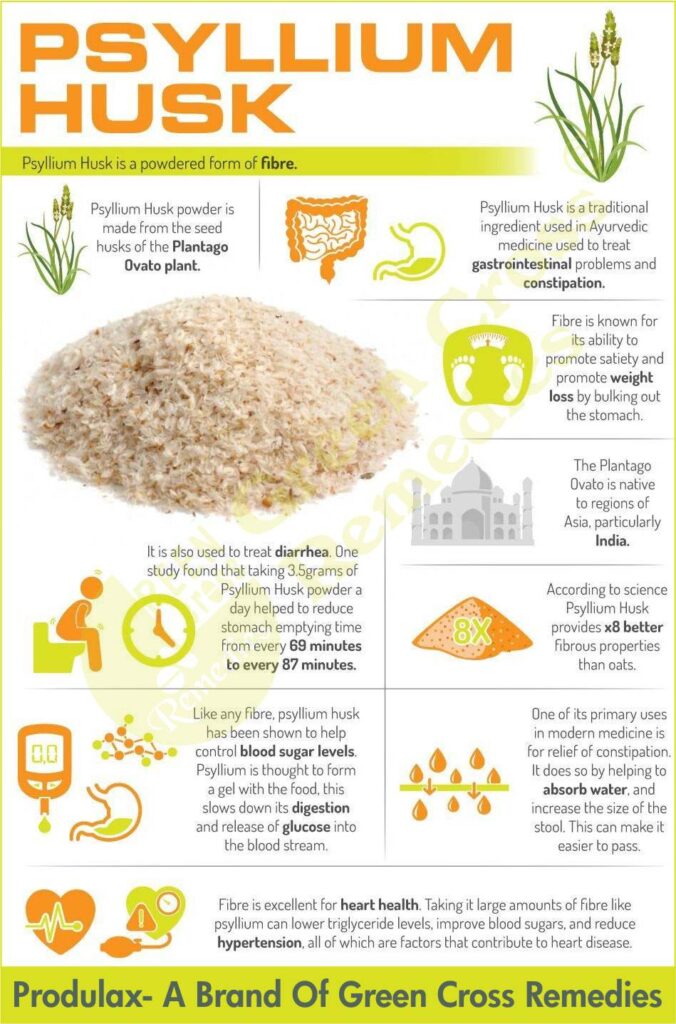The Benefits of Psyllium Husk: A Comprehensive Guide
Welcome to our comprehensive guide on the benefits of psyllium husk. In this article, we will explore the various advantages of incorporating psyllium husk into your diet. Psyllium husk is a natural fiber derived from the seeds of the Plantago ovata plant. It has gained popularity in recent years due to its numerous health benefits. Let’s delve into the details and discover why psyllium husk is worth considering for your overall well-being.
Improved Digestive Health
Psyllium husk is widely known for its ability to promote good digestive health. The high fiber content of psyllium husk acts as a gentle laxative, aiding in regular bowel movements and preventing constipation. It adds bulk to the stool, making it easier to pass through the digestive tract. This natural fiber also helps regulate bowel movements, providing relief from both diarrhea and constipation.
Lowered Cholesterol Levels
Research has shown that psyllium husk can help lower cholesterol levels, particularly LDL (bad) cholesterol. The soluble fiber in psyllium husk absorbs water and forms a gel-like substance in the digestive system. This gel-like substance binds to cholesterol, preventing its absorption into the bloodstream. By reducing LDL cholesterol levels, psyllium husk can contribute to a healthier heart and reduce the risk of cardiovascular diseases.
Blood Sugar Control
Psyllium husk can also aid in blood sugar control, making it beneficial for individuals with diabetes or those at risk of developing the condition. The soluble fiber in psyllium husk slows down the digestion process, which leads to a gradual release of glucose into the bloodstream. This helps prevent sudden spikes in blood sugar levels and promotes better glycemic control.
Weight Management
If you’re looking to manage your weight effectively, incorporating psyllium husk into your diet can be a smart choice. The high fiber content of psyllium husk promotes a feeling of fullness, reducing appetite and preventing overeating. By adding bulk to the diet, psyllium husk can also aid in weight loss by promoting regular bowel movements and preventing the absorption of excess calories.
Improved Heart Health
In addition to lowering cholesterol levels, psyllium husk offers other benefits for heart health. The soluble fiber in psyllium husk can help reduce blood pressure by promoting better blood vessel function. It also has anti-inflammatory properties that can contribute to a healthier cardiovascular system. By incorporating psyllium husk into your diet, you can take a proactive approach to maintaining a healthy heart.
Enhanced Digestive Regularity
Psyllium husk can be particularly beneficial for individuals who struggle with irregular bowel movements. The fiber in psyllium husk adds bulk to the stool, making it easier to pass through the digestive system. It also stimulates the natural contractions of the intestines, promoting regular bowel movements. By improving digestive regularity, psyllium husk can provide relief from discomfort and help maintain a healthy digestive system.
Prebiotic Properties
Psyllium husk acts as a prebiotic, providing nourishment for the beneficial bacteria in the gut. These beneficial bacteria play a crucial role in maintaining a healthy gut microbiome. By promoting the growth of these bacteria, psyllium husk supports overall gut health and enhances the body’s ability to absorb nutrients from food.

In summary, psyllium husk offers a wide range of benefits for your overall health and well-being. From improving digestive health and lowering cholesterol levels to aiding in blood sugar control and weight management, psyllium husk is a versatile dietary supplement. By incorporating psyllium husk into your daily routine, you can take a proactive step towards maintaining a healthier lifestyle. Remember to consult with your healthcare provider before making any significant changes to your diet or lifestyle.
Frequently Asked Questions about the Benefits of Psyllium Husk
1. What is psyllium husk?
Psyllium husk is a natural dietary fiber derived from the seeds of the Plantago ovata plant.
2. How does psyllium husk benefit digestion?
Psyllium husk absorbs water in the intestines, adding bulk to the stool and promoting regular bowel movements.
3. Can psyllium husk help with weight management?
Yes, psyllium husk can aid in weight management as it promotes a feeling of fullness, reducing appetite and preventing overeating.
4. Does psyllium husk help in controlling blood sugar levels?
Psyllium husk can help regulate blood sugar levels by slowing down the absorption of glucose and improving insulin sensitivity.
5. Can psyllium husk benefit heart health?
Yes, psyllium husk has been shown to lower cholesterol levels, reduce blood pressure, and improve overall heart health.
6. How does psyllium husk benefit individuals with constipation?
Psyllium husk adds bulk to the stool, softening it and making it easier to pass, thus relieving constipation.
7. Is psyllium husk safe for regular consumption?
Psyllium husk is generally safe for regular consumption, but it is important to follow the recommended dosage and drink plenty of water.
8. Can psyllium husk help with managing diarrhea?
Psyllium husk can help manage diarrhea by absorbing excess water in the intestines and adding bulk to the stool.
9. Does psyllium husk have any potential side effects?
Some individuals may experience gas, bloating, or stomach cramps when consuming psyllium husk, but these side effects are usually mild and temporary.
10. How should psyllium husk be consumed for maximum benefits?
Psyllium husk should be consumed with an adequate amount of water or other fluids to prevent choking or obstruction in the throat or esophagus.




